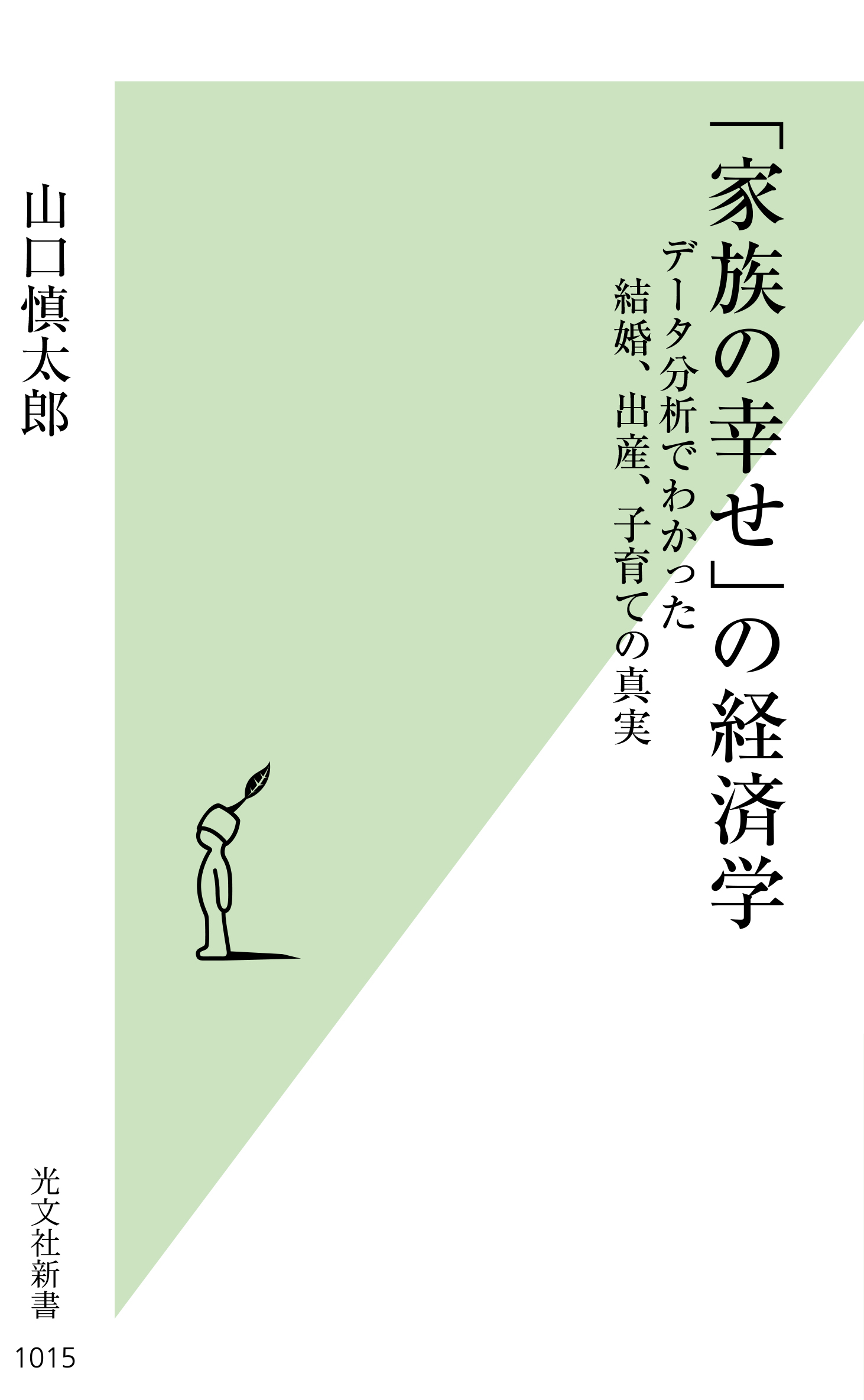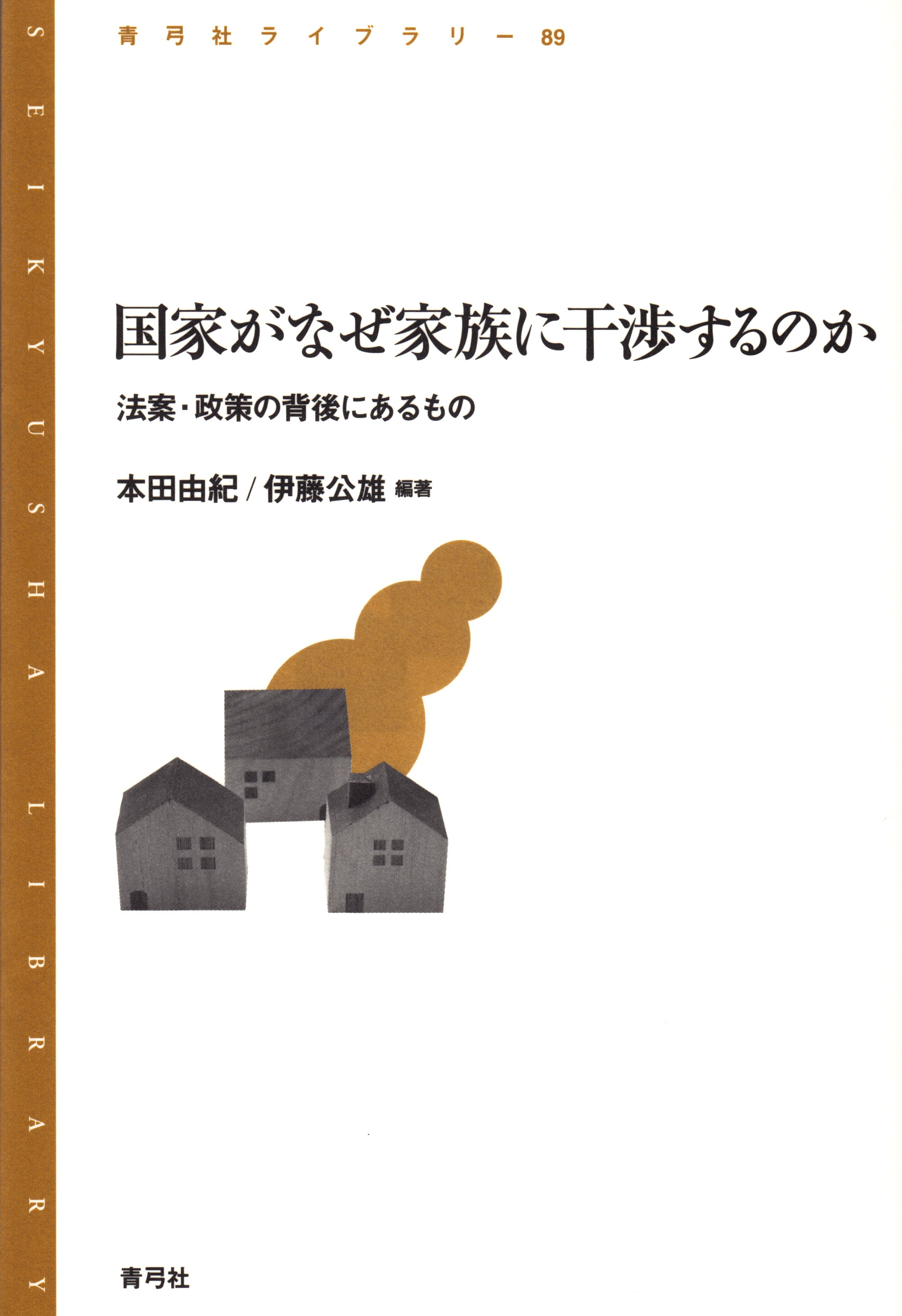
Title
Kazoku no Shiawase no Keizai-gaku (The Economics of “Family Happiness” - The reality of marriage, childbirth, and childrearing revealed by data analysis)
Size
259 pages, paperback pocket edition
Language
Japanese
Released
July 18, 2019
ISBN
978-4-334-04422-0
Published by
Kobunsha-Shinsho
Book Info
See Book Availability at Library
Japanese Page
“C-sections are no good. That’s not real childbirth. Your child will turn out to be restless.”
“Breast milk is the best for a baby. A breast-fed baby receives a mother’s love and will become smart.”
“A child needs to be raised exclusively by the mother until he or she is 3 years old. There’s even a traditional saying that the soul of a child at three years old is the same at 100.”
Expectant mothers and fathers, who are constantly worried about childbirth and parenting, are subjected to all kinds of opinions and advice. Many of those giving this advice do so because they believe that it will help the expectant parents. Also, they are confident that they are correct because they themselves have succeeded or have seen others around them succeed doing the things that they recommend.
Undoubtedly, experiences and stories told by people close by have a certain persuasiveness. But, should they really be relied on? Actually, recent economics research has shown that all of the bits of advice listed above are wrong.
This book introduces the results of research in economics and various other scientific fields related to marriage, childbirth, and childrearing. For example, research has revealed that going to nursery school is linked not only to healthy cognitive and emotional development of the child but, also, improved happiness of the mother.
When a child is born, many mothers take childcare leave with the goal of eventually balancing work and childrearing. The ideal length of maternity leave is about one year. Taking a longer maternity leave up to 3 years is not only disadvantageous in terms of a mother’s career but is not desirable for a child’s development. This is because interactions with adults and children other than family members is important for a child’s language development.
Furthermore, it is not only mothers who take childcare leave. It is anticipated that, in this day and age, fathers will also take childcare leave. It has been shown that, even if the period is only one month, a father’s parental leave leads to dramatic changes in lifestyle marked by more proactive involvement in housework and childcare.
This knowledge has been gained through the analysis of real-world data. The data analyzed naturally includes data from large-scale public surveys such as the national census but also includes data from field experiments and online dating and matching sites in the real world. Such data analysis yields knowledge whose reliability far exceeds that of a mishmash of individual anecdotes.
Because economics involves the study of money, one might think that it has nothing to do with the family happiness, much less marriage, childbirth, or childrearing. But that is certainly not the case. Economics is the study of why and how people make decisions and act on those decisions. As such, the knowledge gained through economics allows us to get even closer to the essence of family happiness. It is our hope you and your family can use the essence of happiness revealed by cutting-edge economics research to enjoy even greater happiness.
(Written by YAMAGUCHI Shintaro, Professor, Graduate School of Economics / 2020)
Related Info
The 41st (2019) Suntory Prize for Social Sciences and Humanities (Political Science and Economics)
https://www.suntory.com/sfnd/prize_ssah/list.html



 Find a book
Find a book


